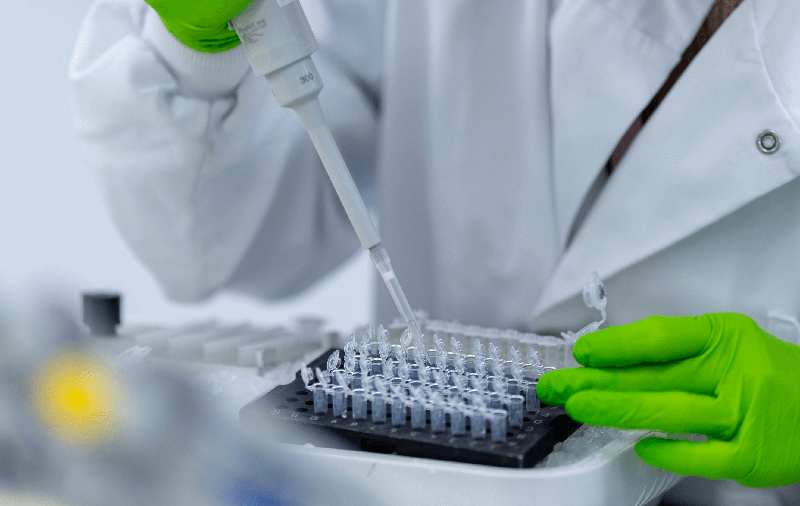
FFPE Master Mix
Not seeing what you’re looking for? Inquire about a new product
Enhanced FFPE Master Mix for High-Sensitivity Genotyping Assays
Formalin-fixed paraffin-embedded (FFPE) tumor tissues constitute a valuable resource for retrospective studies due to long-term storage, however, DNA yield and quality, may be poor due to cross-linking of the DNA and its fragmentation and success rate of genotyping assays using DNA purified from such samples remains low.
Meridian’s Lyo-Ready Genotyping Direct qPCR FFPE allows digestion of the tissue, without the need for purification, greatly reducing the risk of sample damage, loss and contamination while simplifying and accelerating the analysis process.
- Ultra-sensitive detection down to less than 1 copy of DNA using direct amplification protocols.
- Inhibitor-tolerant to PCR inhibitors found in FFPE tissue to give tight fluorescence clusters with clear allele discrimination
- Can be used in a liquid or dry format, reducing the cost and complexity of creating ambient-temperature stable assays.
Lyo-Ready Genotyping Direct qPCR FFPE combines the latest advances in buffer chemistry and PCR enhancers, together with an optimized antibody-mediated hot-start polymerase, dNTPs and MgCl2, along with a two-tube tissue extraction buffer, to release the DNA, for fast, precise, and highly reproducible allelic discrimination and cluster separation with SNP detection assays, even in the presence of PCR inhibitors presence in crude FFPE tissue extracts.
Catalogs & Brochures
Lyo-Ready Genotyping Direct qPCR FFPELyo-Ready Genotyping Direct qPCR FFPE
qPCR enables you to screen known SNPs. The benefits of qPCR are that it is easy, accurate, and can scale to high throughput. The bioinformatic analysis is also less complex than for other technologies, such as sequencing and microarrays.
5′-nuclease (TaqMan) allelic discrimination uses a primer pair to amplify the target area and two allele-specific probes to detect your target SNP alleles and report the genotypes of your samples. Unlike normal qPCR, in genotyping the fluorescence level is only measured at the end of the PCR and the results are displayed on a scatter plot, allowing hundreds of assays to be run and analysed in parallel.
FFPE specimens are affected by numerous factors including fixative pH (that can lead to cross-linking of the DNA), duration of tissue fixation, age and storage condition of tissue blocks. This leading to extremely time-consuming, labour-intensive workflows that all result in fragmented DNA and consequently, the success rate of genotyping DNA purified from such samples is low.
Yes, we sell these as MDX004 Tissue Extract-PCR Buffers.
With Meridian’s Lyo-Ready Genotyping Direct qPCR FFPE, you can see down to 1 copy.
It is stable for up to 2 years at ambient temperature if correctly stored in sealed pouches.
Get In Touch With A Specialist
Have questions about a product? Want to learn more about Meridian’s molecular or immunoassay reagent portfolio? We want to hear from you!